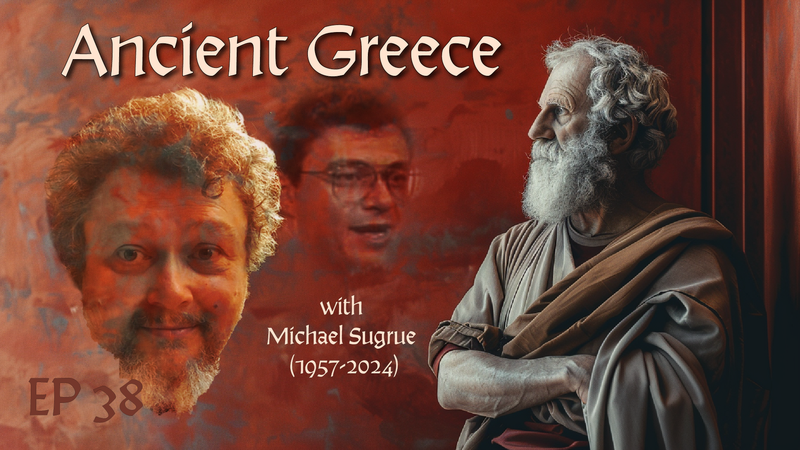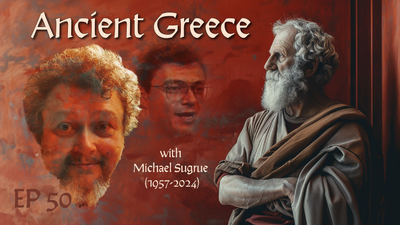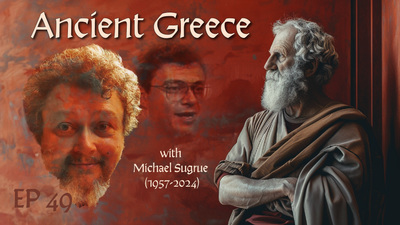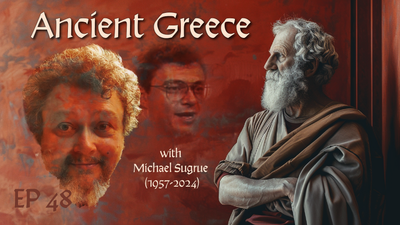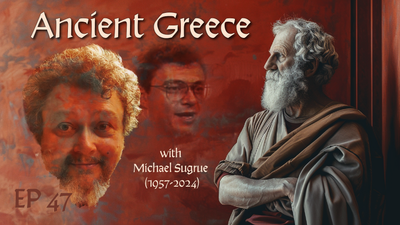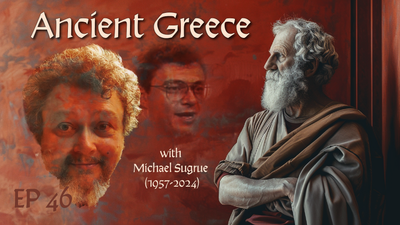This week’s exploration of Plato’s Allegory of the Cave asks us to rethink the nature of reality and confront our assumptions about knowledge and truth. Imagine living your whole life in a cave, where the only world you know is shadows flickering on a wall. For Plato, this is not just a story about physical entrapment but a metaphor for intellectual and spiritual blindness. In many ways, it’s a timeless challenge—how do we break free from the “caves” of our own creation, whether they’re biases, limitations, or societal pressures?
Today, we might equate these shadows with the filtered images and snippets of truth we consume daily. Like Plato’s prisoners, we’re often surrounded by illusions, crafted and presented through media or technology. Moving beyond these shadows means seeking deeper, often uncomfortable truths. And here’s where it gets interesting: the path out of the cave isn’t easy or instantaneous. It requires deliberate steps toward self-awareness, critical thought, and ultimately, transformation. How often do we find ourselves content in the shadows, reluctant to step into the light of understanding?
Plato’s cave reminds us that enlightenment requires an active pursuit of truth—questioning, exploring, and challenging assumptions. This newsletter serves as an invitation to embrace that pursuit with vigor and curiosity, encouraging readers to discuss and expand on these ideas within the vibrant community on planksip.org, where Plato’s legacy lives on as an ideal for intellectual exploration.
From the Archives of Ancient Greece: Featuring Dr. Michael Sugrue
Dr. Michael Sugrue’s fresh take on Plato’s cave brings a unique focus on the allegory’s ethical dimensions, highlighting its relevance to our modern world. Sugrue argues that Plato’s allegory is not just a philosophical tale but a profound call to recognize our responsibility in cultivating true knowledge and resisting the comfort of illusions. In his view, the journey from darkness to light is not merely an intellectual endeavor but a moral one—a duty to ourselves and society to seek clarity over convenience.
Take, for instance, Sugrue’s comparison to our engagement with digital media. In a world where algorithms predict and shape our preferences, it’s all too easy to remain in our own “caves” of confirmation bias and echo chambers. Plato’s allegory speaks to these modern traps: breaking free requires conscious effort to confront the full spectrum of truth, rather than curated selections designed to reinforce what we already believe.
Sugrue’s insights encourage us to recognize that Plato’s allegory is as much about the power of knowledge as it is about our ethical duty to pursue it. By venturing beyond our self-made caves, we can engage with new perspectives, challenge our beliefs, and ultimately contribute to a more enlightened society. This journey is one we invite readers to undertake, sharing your own insights and discoveries on planksip.org, where ancient wisdom is given a voice for the present day.
Insights from the Dialogues: Quoting Plato
In The Republic (514a-520a), Plato’s Allegory of the Cave depicts prisoners chained in darkness, mistaking shadows for reality. When one prisoner escapes, he stumbles out into the painful, blinding light of the sun, symbolizing truth and knowledge. Initially overwhelmed, he gradually comes to realize that his prior understanding was only a shadow of the real world. The allegory doesn’t just illustrate ignorance—it also depicts the often uncomfortable process of enlightenment, where confronting reality can be disorienting and difficult.
This journey from shadows to truth mirrors our own experiences. Imagine the discomfort of questioning a long-held belief, whether about ourselves or the world around us. It’s tempting to stay in the comfort of our established perspectives, but like the freed prisoner, growth requires the courage to face a sometimes blinding truth. Plato’s allegory captures the vulnerability of learning and evolving, suggesting that true understanding often involves a difficult but rewarding struggle.
Engage with this metaphor by exploring instances in your life where shifting perspectives led to transformation. Plato’s call to pursue knowledge is timeless, and the allegory of the cave invites us to share these personal reflections with others. Through planksip.org, we can extend Plato’s dialogues into our modern lives, collectively pursuing the truths that exist beyond the shadows.
Chance and Fate: Emerging from Darkness in Ancient Games
Emerging from ignorance into knowledge is an unpredictable journey, one filled with both challenges and unforeseen rewards. In ancient Greece, games like astragali (knucklebones) embodied a balance of chance and skill, a metaphor for the role of fate in human life. Just as the path out of the cave is fraught with uncertainty, ancient games of fate and fortune underscored the Greek understanding of life’s unpredictability.
Consider the connection between these games and Plato’s cave. In both cases, outcomes are beyond our control, yet we can shape our approach to the unknown. When rolling astragali, players could plan their moves, but the results were ultimately uncertain—a reminder that while we can strive for knowledge, outcomes may surprise us. Like the freed prisoner who chooses to pursue truth despite the discomfort, ancient Greeks embraced the unpredictability of life, accepting that chance plays a role in every discovery.
Explore the Mystical World of Astraguli: Ancient Games of Chance with Cultural Significance.
The journey from ignorance to enlightenment mirrors these games: each step forward is both a risk and a reward. For those intrigued by the blend of fate and free will in Plato’s allegory, engaging with our planksip.org community provides a space to explore how ancient symbols of chance reflect our modern quests for meaning, bringing timeless ideas into conversation with today’s uncertainties.
Virtues Revisited: Practical Lessons for Today
At the heart of Plato’s allegory lies the virtue of wisdom—the courage to seek out what is true and endure the discomfort of discovery. Plato saw wisdom as the highest of the cardinal virtues, a quality that demands both intellect and humility. Wisdom, for Plato, means resisting the temptation to accept convenient illusions and dedicating oneself to a life of inquiry and learning.
This call for wisdom has never been more relevant. In a world flooded with information, discerning truth from falsehood is a challenging task. Plato’s allegory reminds us that wisdom is not passive; it is an active choice to question, analyze, and seek clarity. Think about the areas in your own life where pursuing truth may require patience, openness, and a willingness to be wrong. Just as the freed prisoner painfully adjusts to the light, wisdom often demands sacrifices—of comfort, assumptions, and sometimes, of social acceptance.
This week, consider ways to bring Plato’s ideal of wisdom into your daily interactions. Whether by questioning a popular belief or seeking new knowledge, take steps toward enlightenment, however small. Share your experiences on planksip.org, where wisdom-seekers engage in meaningful dialogue and explore how Plato’s ideas can inspire our pursuit of a well-examined life.
Engage with Us: Reader’s Corner
Have you ever experienced a moment that felt like emerging from a cave, where a new understanding reshaped your view of the world? Perhaps it was in learning a difficult truth, challenging a long-standing belief, or encountering a new perspective. These moments, while often uncomfortable, mark significant shifts in our personal and intellectual growth.
At planksip.org, we encourage you to share these transformative experiences, whether large or small. By connecting with others who are also stepping out of their own caves, we foster a community committed to the pursuit of knowledge and self-discovery. Selected responses will be highlighted in future newsletters, sparking conversations that continue Plato’s legacy of shared inquiry. Join us in exploring how ancient wisdom meets modern insight, and be part of a dialogue that seeks to illuminate the shadows.
Closing Reflection: Socrates’ Enduring Legacy
The Allegory of the Cave is a call to seek wisdom, no matter the cost. Socrates exemplified this pursuit, often at odds with his society but resolute in his mission to “examine life.” In stepping out of our personal caves, we honor his legacy, recognizing that the path to knowledge is challenging but ultimately fulfilling.
As we reflect on Plato’s allegory, let’s remember that enlightenment is not an end point but a continuous journey, one that invites us to question, learn, and grow. Through platforms like planksip.org, we keep this Socratic spirit alive, engaging in thoughtful discussions that bridge the wisdom of the past with the insights of the present. Each step we take out of the cave brings us closer to a life rich with meaning and guided by truth.

Plato Re-Imagined
This course offers 32 comprehensive lectures exploring most of Plato's dialogues. These lectures guide students toward a consilient understanding of the divine—a concept that harmonizes knowledge across disciplines and resonates with secular and religious leaders. As a bonus, Lecture #33 focuses on consilience, demonstrating how different fields of knowledge can converge to form a unified understanding.

